Our focus on cortisol started with Sleep Series Part 4 which laid out the science of what cortisol is, its cycle, and how it affects sleep. In the following post, we looked at a few reasons why evening cortisol might be high. The last post presented methods for lowering evening cortisol levels such as finding ways to laugh, meditation, progressive muscle relaxation, listening to or playing music, getting a massage, and easy exercise outdoors. With lower evening cortisol levels, high-quality sleep is easier to come by. So if your sleep is suffering and you feel as though stress might be to blame, you could try these practices and see if your situation improves.
This time, we’ll look at some nutritional strategies for lowering evening cortisol for better sleep. Combined with the relaxation practices in the last post, a better night’s sleep is on its way. As a preface to these suggestions, only in some cases will the lack of these nutrients potentially cause problems with stress and sleep. That being said, deficiencies in these nutrients are relatively common so it’s worth experimenting with them to see if they help.
Let’s begin:
7 Nutritional Strategies for Better Sleep
1. Get your Omega-3 Fatty Acids, and Limit Omega-6
This suggestion comes up in many different arenas including increasing your resistance to sunburn through a proper diet. Well, getting enough omega-3’s also reduces the cortisol response to mental stress. In this study, supplementing with fish oil (rich in omega-3 fatty acids) for three weeks blunted the cortisol response to stress significantly. Hurray for eating grass-fed beef and fatty fish (both great sources of omega-3 fatty acids).
Likewise, excess omega-6 fatty acids (generally from vegetable oils like soybean, canola, and corn) promote the release of a hormone that secretes cortisol from the adrenal glands. So, in general, it’s healthy to have an intake of omega-6 to omega-3 below 4:1 for many reasons, one of which is that cortisol stress responses will be lowered, and you will sleep better. As Mark Sisson explores in this article, whole food sources of omega-6 (nuts, avocado, chicken) are not nearly the problem that vegetable oils are, and that as long as you’re limiting vegetables oils, getting sufficient animal based omega-3’s (DHA and EPA), you’ll likely be fine. Avoid the veggie oils, and eat some fish! Unfortunately, that can be tough to do with the modern food industry in control.
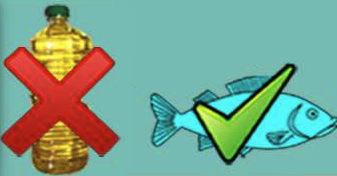
2. Magnesium
According to the US Department of Agriculture, 57% of Americans do not get sufficient amounts of magnesium in their diets. In Canada, the numbers are similar. Magnesium is an important mineral that usually comes from leafy greens, nuts, seeds, fish, some fruits, and cacao (chocolate) amongst other foods. The typical western diet is often low in these foods which explains the mass deficiency.
Magnesium deficiency can result in the hyperarousal of the nervous system, which means that your threshold for “getting stressed” (and secreting too much cortisol) will be lower. Magnesium reduces the release of a hormone that tells the adrenal glands to secrete cortisol. In competitive triathletes, magnesium supplementation resulted in a significant drop in cortisol secretion pre- and post-race.
So, if you’re feeling hyper-stressed and want to sleep better, try some magnesium rich foods, a magnesium supplement, or even take an epsom salt bath to absorb magnesium through your skin! For a magnesium supplement, I have used Natural Calm in the past, and found that when taken at night it calmed me down and allowed for better sleep.
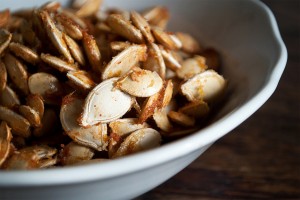
3. Zinc
Another mineral in the list – zinc! Zinc deficiency is less common than magnesium deficiency, but can still result in poor health outcomes. Zinc is involved in the production of many enzymes, immune function, and wound healing. The best source of zinc are oysters, but nuts and seeds aren’t too shabby either.
Zinc supplementation inhibits cortisol secretion (here’s another study). So, similarly to magnesium, some zinc-rich foods can bring down cortisol and allow for better sleep! Let’s hear it for minerals!
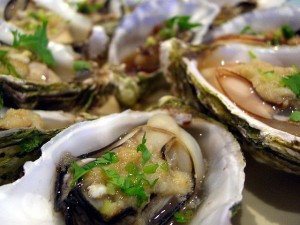
4. Glycine (Gelatin or Collagen)
Glycine is a non-essential amino acid (our bodies can produce it from other amino acids) that accounts for about 30% of the amino acids in collagen proteins, which are in turn about 30% of the proteins in the human body. Collagen proteins are the connective tissues in the body (skin, tendons, ligaments, parts of bone, cartilage), as opposed to muscle proteins. Gelatin is rendered collagen (boiled and ‘broken up’ chemically). Yes, this is the stuff that JELLO is made of.
Traditionally, humans diets were higher in animal foods that were rich in gelatin (and thus glycine), but nowadays I see a lot more skinless chicken breast and less gelatinous bone marrow on the table. Consuming glycine (and gelatin) in general to support your connective tissues makes sense, and has a host of benefits (one of which is improved resistance to sun damage).
Glycine and gelatin are known to increase sleep quality. I couldn’t find any specific studies linking glycine or gelatin to a reduction in cortisol, but biologist and author Ray Peat offers an explanation that eating too much muscle meat and not enough gelatin can induce a physiological state that is akin to being under stress and can cause an increase in cortisol. No doubt this will be investigated in future studies. For now – make some chicken/beef/pork stock, eat the chicken skin, and consider a gelatin supplement.
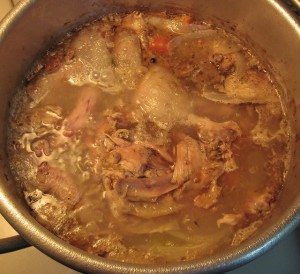
5. Antioxidants
Antioxidants are compounds that mop up the damage incurred from stress (in its many forms). These can be the known vitamins, or plant compounds that persuade the body into producing its own antioxidants. These antioxidants come from all minimally processed fruits and vegetables, and most animal products too.
Under physical stress, antioxidant status reduces the cortisol response. So, another reason to eat your colourful fruits and veggies instead of candy and chips. Antioxidant rich dark chocolate also reduces cortisol. Heck, you can even just smell antioxidant rich lavender or rosemary and see a reduction in cortisol (jury is out whether it’s the antioxidants though).
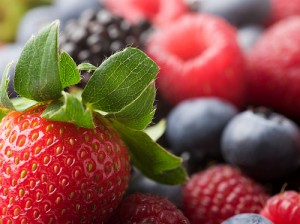
6. Tea
Black, green, or white tea is known to reduce cortisol. This is contradictory to the last post where it was mentioned that caffeine is known to increase cortisol, but an amino acid present in tea, l-theanine, is known to induce relaxation and calmness. Tea is also loaded with antioxidants, so drink it up! Not too close to bedtime, but in the morning and early afternoon, it shouldn’t be a problem, and might keep you feeling chill.

7. Phosphatidylserine
Phosphatidylserine is a chemical component of cell membranes (the layer between the cell and the surrounding fluid). It is specifically involved in the life cycle of the cell, where it signals when the cell’s life should end (apoptosis). It is a non-essential nutrient that the body can produce naturally, but the theory is that as our bodies age, our ability to effectively produce phosphatidylserine decreases.
Also, it decreases cortisol. Subjects who supplemented with phosphatidylserine showed decreased cortisol responses to both physical and mental stress. Supplements are available, but food sources are easy enough to find. All animal flesh (meat and fish, and eggs) will have it to some degree, but the highest concentrations are in the brain and other organs. Plant sources are low in phosphatidylserine, but surprisingly, soy lecithin is a rich source. So, phosphatidylserine in the diet, either by eating animal foods or supplementing, may help to keep cortisol down! If nothing else is working, it’s worth a try.
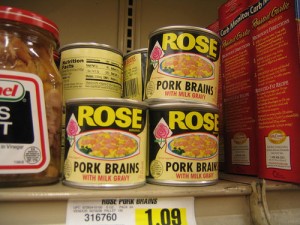
Conclusions,
In general, it is quite possible to improve your resilience to stress and keep evening cortisol levels low with a proper diet. Looking at the tips above, it’s clear that focusing on nutrient dense food increases our ability to cope with stress so that cortisol doesn’t get out of control. Living on processed foods like cheerios, mac & cheese, and sugar doesn’t deliver anything laid out above and could put you in a situation where you are hyper-responsive to stress.
So, in conclusion, eat a nutrient-dense diet based on high quality animal foods and fruits & veggies to help manage cortisol levels. Other than in extreme situations, supplements probably won’t be needed. That being said, supplements are there to supplement just in case you find yourself in a situation where you’re stressed and good food isn’t available, or you’re under extreme stress and food alone doesn’t seem to cut it.
Readers: Do any of these nutritional strategies work for you? How do you incorporate them into your life?
